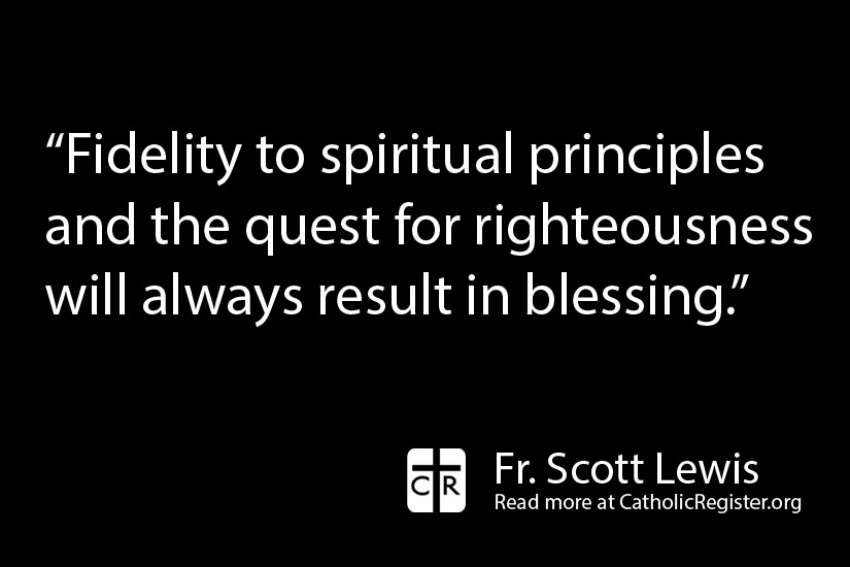Cynicism or abandonment of faith is one option, a path followed by far too many. The other option is to rethink our faith understanding.
Perhaps we don’t have the full picture or a complete awareness. This was the path chosen by the people of Israel during the Maccabean revolt of the second century B.C. They had risen against their oppressor, the Greek king Antiochus Epiphanes. A half-mad megalomaniac, he was bent on destroying Jewish culture and religion.
All the elements of the Jewish law were forbidden under pain of death, including circumcision, dietary rules, and Sabbath observance. The temple in Jerusalem had been profaned with pagan sacrifices and converted into a temple of Zeus.
The Jews rightly felt that their very survival as a distinct people was on the line. They could give in to the demands of their oppressors or stand their ground, but the latter choice involved suffering and death.
The account of the martyrdom of the seven brothers is unique in several ways. It is basically a martyrology, very similar those later in Christianity.
It was idealized, not altogether historical, and its purpose was to encourage and strengthen the faithful.
It is also the first place in the Bible in which the resurrection of the dead is mentioned explicitly. The dawning of this belief, perhaps sparked by the sojourn in Babylon, addressed the problem of God’s justice and faithfulness. During this war, those who collaborated with the enemy and betrayed their faith and traditions flourished. Those who were steadfast and faithful were being tortured and killed.
This certainly clashed with their beliefs about covenant fidelity. God was supposed to bless those who were faithful to the law and the covenant. Now it seemed that God was fickle and had abandoned them.
Their insight into the nature of the resurrection illuminated God’s grand plan — God was preparing to intervene in human history.
God is the author of life and the dead would be raised, those who had been faithful and good to blessedness, and the faithless and wicked to punishment. God was not the problem, only deficient human understanding.
We often don’t see past our immediate circumstance. Taking a long and broad view of our lives, human history, and God’s relationship with humanity can keep us from falling into discouragement or despair.
Our choices and actions matter a great deal, even if that is not immediately evident. Fidelity to spiritual principles and the quest for righteousness will always result in blessing.
The author of 2 Thessalonians had the same message. He encouraged his followers not to be discouraged at the machinations of wicked people. God gives us courage, strength and protection, but most of all, God is always faithful. We need not fear anything when we decide to walk in God’s ways.
Being bound by materialist thinking can prevent us from achieving spiritual insight and awareness.
The Sadducees did not believe in the resurrection, so they posed an impossible and ridiculous hypothetical question to Jesus regarding a woman married sequentially to seven brothers. Their intent was to demonstrate once and for all that notions of the resurrection were untenable.
Jesus refused to answer their question directly, instead implying that their basic premise was all wrong. In Mark’s version of the story, which Luke tones down, Jesus even blasted their ignorance both of Scripture and the power of God. They were thinking in physical and material terms, and that distorted their understanding of death and the afterlife.
Jesus described the resurrected life as lacking marriage or full embodiment. If the next life were merely a continuation of the present, then they would be correct — there were insurmountable problems with belief in the resurrection.
But what if the resurrection were a radically different way of being and living?
Jesus described an elevated angelic and eternal existence, with the categories of earthly and human life left far behind. God is about life, not death, and we are invited to be fully alive in God even in this life.
How often have we perhaps not understood the power of God, or been content with a very superficial understanding of Scripture?
Our hearts and minds must be broad and deep to even begin to comprehend God.


